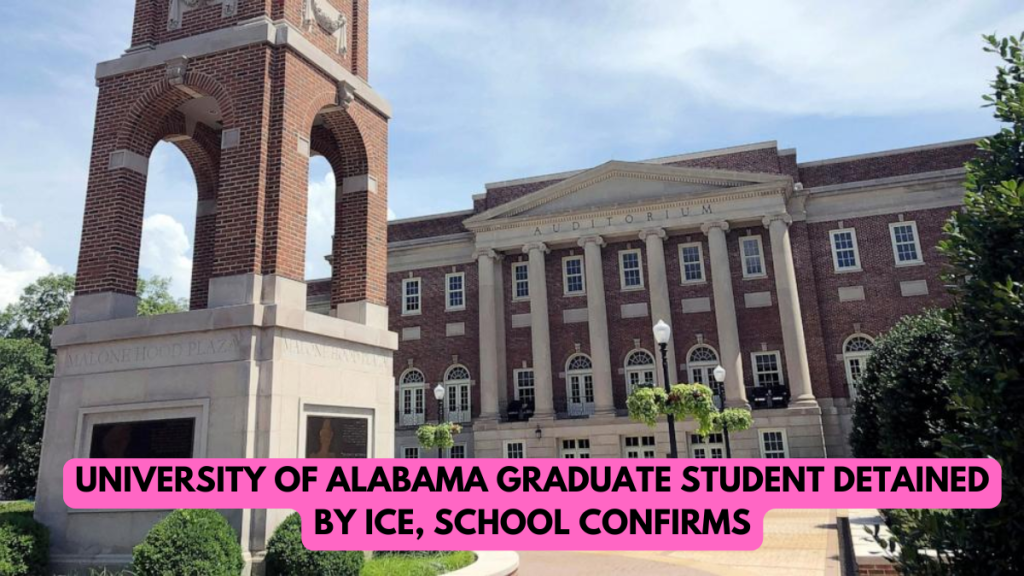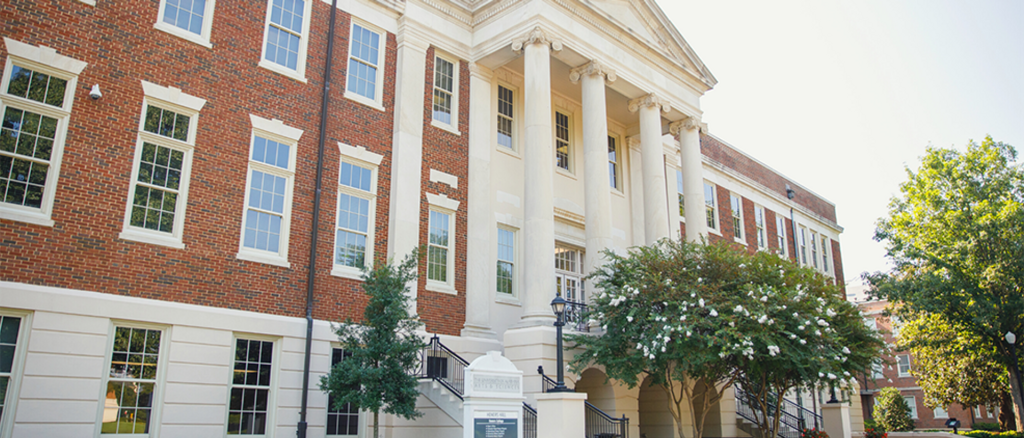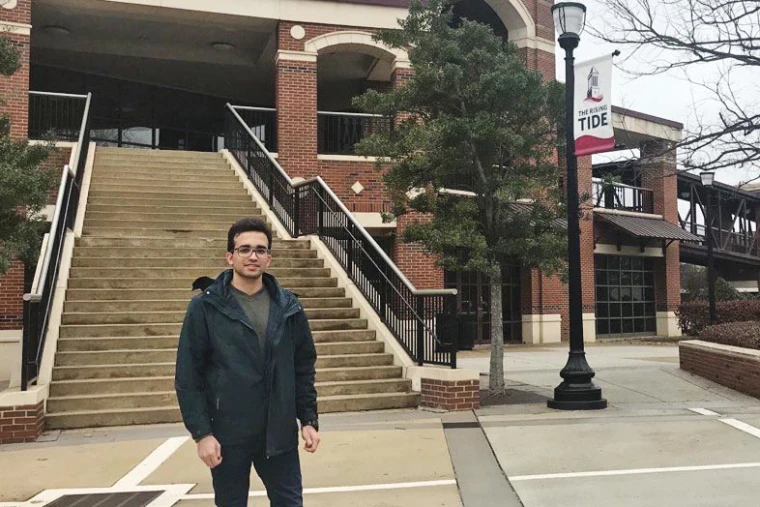
TUSCALOOSA, Ala. – A graduate student at the University of Alabama has been detained by U.S. Immigration and Customs Enforcement (ICE), prompting concerns among students, faculty, and immigration advocates.
The Detention of Alireza Doroudi
The student, identified as Alireza Doroudi, an Iranian doctoral candidate specializing in mechanical engineering, was taken into custody early Tuesday morning at his off-campus residence in Tuscaloosa. University officials confirmed the detention but did not initially disclose his identity, citing privacy regulations.
Doroudi arrived in the United States in January 2023 under an F-1 student visa. However, six months later, he was informed that his visa had been revoked. Despite this, he continued his studies at the university after receiving advice from the institution’s International Student and Scholar Services (ISSS), which assured him that maintaining student status allowed him to stay legally in the U.S.
ICE and DHS Justification
The Department of Homeland Security (DHS) issued a brief statement, explaining that Doroudi was detained due to “significant national security concerns.” However, the agency has not provided details regarding specific threats or violations he may have committed. ICE has also refrained from elaborating on the circumstances leading to his arrest.
Doroudi’s attorney, David Rozas, rejected allegations that his client posed any security risks. “Alireza has never been charged with any crime and has fully complied with all immigration and university regulations,” Rozas said. “His only goal is to complete his doctorate.”
Campus and Community Outcry

News of Doroudi’s detention has sparked an outpouring of support from University of Alabama students and faculty members. Many have expressed frustration over the lack of transparency surrounding his case and fear that increased immigration enforcement could deter international students from pursuing education in the United States.
The National Iranian American Council (NIAC) has also condemned the arrest, calling on ICE to release Doroudi immediately if no charges are filed. “The treatment of Iranian students in the U.S. under the guise of national security is deeply troubling,” NIAC President Jamal Abdi stated. “We demand due process and accountability.”
A Pattern of Immigration Crackdowns?
Doroudi’s case is not an isolated incident. Under the Biden administration, immigration enforcement actions have continued to affect international students, activists, and foreign nationals with revoked visas. Similar high-profile cases include the detention of Tufts University Ph.D. student Rumeysa Ozturk, who was accused—without public evidence—of ties to Hamas, and Columbia University graduate student Mahmoud Khalil, a Palestinian activist whose green card was suddenly revoked.
These actions align with previous policies that have scrutinized foreign students from countries deemed security risks. In 2020, the Trump administration attempted to bar international students from staying in the U.S. if their classes moved online due to the COVID-19 pandemic—a decision later rescinded after widespread backlash.
Legal Path Forward for Doroudi

Legal experts argue that Doroudi may have options to challenge his detention, depending on the specific reasons for his visa revocation. If ICE does not charge him with any crimes or violations, he could seek relief through legal appeals, including requests for a student visa reinstatement or protection under asylum laws if he faces persecution in Iran.
Doroudi’s attorney has already filed a petition for his release, arguing that his client poses no threat and should be allowed to continue his studies while his immigration status is reviewed.
What’s Next?
University of Alabama officials have stated they are closely monitoring the situation but have declined to comment on any legal proceedings related to Doroudi. Meanwhile, immigration advocacy groups are urging students and faculty to petition for his release and call on lawmakers to intervene.
The case also raises broader questions about the treatment of international students and the balance between national security and academic freedom. As policymakers continue to debate immigration policies, Doroudi’s detention serves as a reminder of the precarious legal status many foreign students navigate while studying in the U.S.
For more information on student visa regulations and rights, visit the official U.S. Citizenship and Immigration Services (USCIS) website: www.uscis.gov or the Department of Homeland Security’s Student and Exchange Visitor Program (SEVP): www.ice.gov/sevis.



